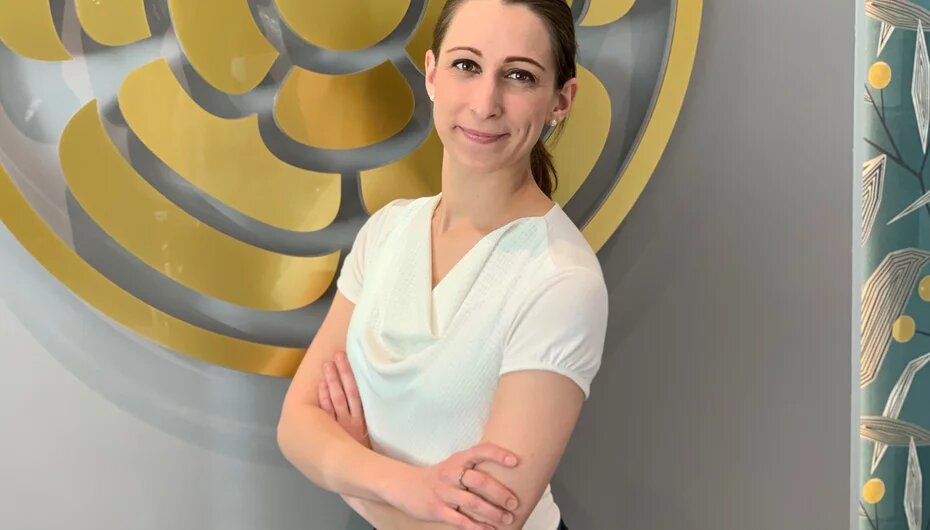What percentage of patients who have had Covid-19 may be affected by Post-COVID syndrome?
The international literature gives quite variable proportions. There are studies that mention a relatively low percentage, but there are also reports that 80-90 percent of those who recover experienced symptoms even months after their illness. We receive a lot of enquiries here as well, with patients arriving every day.
Is it clear that someone is suffering from Post-COVID syndrome?
Based on our protocol, we begin the examination with an all-encompassing interview and request that the patient brings all related medical findings with them. From the very first consultation, it is possible to determine with great certainty whether it is Post-COVID syndrome or whether the patient is suffering from some other disease, especially if the COVID-19 infection has been documented and the characteristic symptoms are still present 3 months later. Of course, we also have patients who have not been officially diagnosed with the infection, but are thought to have had it months earlier, and their existing symptoms are a consequence of this. It often turns out that these are indeed Post-COVID symptoms, but there are also cases where there is some kind of organ abnormality behind the complaints.
Is there a test, method or protocol that confirms the diagnosis of Post-COVID?
Currently there is none. In my opinion, with a holistic approach, individualized tests can pinpoint the source of symptoms. We have a wide range of diagnostics, many examination methods and the results can be used to distinguish between organ abnormalities and post-COVID symptoms.
Because of quarantine and confinement, perhaps we pay more attention to ourselves and also notice complaints that weren’t made before the pandemic, or that we just shrugged off. I think sometimes with this increased self-examination we also envision symptoms that really have no basis…
I don’t mind this at all, in fact I’m happy that people have started to care more about their health, and that they have become much more health conscious. Consequently, even with mild pain, they can prevent musculoskeletal disorders that cause severe complaints in 20-30 years’ time. I have not yet encountered a patient at the Post-COVID clinic for whom, even if we ruled out the syndrome, it would not have made sense to continue the examinations and treatment.
Nearly two dozen symptoms can indicate Post-COVID syndrome, which are the most characteristic, most common ones?
Maybe fatigue and depression. Of those who have recovered from Covid-19, 70-80 percent report this. Labored breathing is common in those whose infection has also caused pneumonia. Of course, there may be other organ abnormalities behind these complaints, so it is important to rule them out.
Is there a correlation between the severity of the infection and the severity of the subsequent Post-COVID syndrome?
This correlation is interesting but not clear. So, if someone had a mild course of infection, they could develop Post-COVID syndrome later on. But it is also true that if someone has had a severe infection, it does not mean that they will have Post-COVID symptoms later, or if they do, that they will be severe. It is true that those who are admitted to hospital or even to an intensive care unit (ICU) during the infection may experience a variety of symptoms later, such as post-traumatic stress disorder, which is common in the ICU patients.
Accordingly, just as it is difficult to calculate for whom the virus will cause serious disease, nor is it possible to predict in whom it develops and what kind of serious symptoms Post-COVID syndrome will cause…
This virus is really strange, and we know for the time being that the response to it basically depends on genetics and lifestyle.
If the diagnosis is clear that it is Post-COVID, is there a treatment that is sure to cure those affected?
This is a very complex set of symptoms and unfortunately there is no specific drug for it that if we take it, we will recover. Plus, it’s a question of what we call healing. If a patient with Post-COVID does not have an organ abnormality, they basically need rehabilitation. We need to help them reach a state of equilibrium, a quality of life basically free of complaints. Even if we cannot promise one hundred percent recovery, we have already achieved very good results in this area.
Exactly what treatments can be accessed at the Post-COVID clinic?
At the first appointment, a very thorough, all-encompassing examination of the patient’s medical history occurs, following which the patient receives a plan of testing, treatment and rehabilitation. Extended lab tests and various imaging procedures can be used for accurate diagnosis. We work with several associated specialists, including cardiologists, pulmonologists and gastroenterologists, but neurologists, otolaryngologists, psychologists, physiotherapists and physiotherapists can also help us. After the treatments specified in the plan, we perform a control test where, based on the achieved results, we may set new goals. To achieve significant lifestyle improvement, it is important for patients to be actively involved in the healing process.

